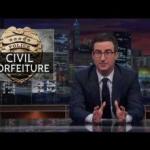OPINION
PER CURIAM.
Plaintiff appeals as of right the trial court's order granting defendants' motion for summary disposition and dismissing all counts of plaintiff's first amended complaint. Defendants cross-appeal the trial court's denial of their request for sanctions on the basis that plaintiff's complaint was frivolous. We affirm in part, reverse in part, and remand.
I
This action arises from events surrounding plaintiff's reassignment in the Wayne County Sheriff's Department. Plaintiff alleged that he was a long-time employee of the Sheriff's Department and, at the time of the events that led to this lawsuit, he held the position of Deputy Chief, with responsibilities for several units including narcotics enforcement, civil process, felony warrants, friend of the court enforcement, and special operations. Defendant Eric Smith was the chief of operations and plaintiff's immediate supervisor, and defendant Robert Ficano was the Wayne County Sheriff.
According to plaintiff, he was in charge of "Operation Push Off" [Push-Off], a vehicle forfeiture program through which the police would seize the vehicles of persons who either purchased drugs or attempted to purchase drugs from known suppliers. Under the terms of the Push-Off guidelines, which were established by the prosecutor and distributed for use to those involved in the program, seized vehicles were either sold and the proceeds used to support the drug enforcement program, or the vehicle owner could negotiate a financial settlement resulting in the release of the vehicle. The guidelines provided, in pertinent part, that the seizure of vehicles is to be conducted pursuant to the provisions of the forfeiture statute, MCL 333.7521 et seq.; MSA 14.15(7521) et seq.
In November 1998, Smith allegedly ordered plaintiff to personally go to the prosecutor's office and secure the release of an automobile that had been confiscated under the push-off program from a relative of an elected city official. When plaintiff attempted to protest, he was directly ordered by Smith to secure the release of the automobile and to request that the prosecutor waive the towing and impound fees. Plaintiff obeyed the order. The prosecutor agreed to return the vehicle, but refused to waive the towing and impound fee.
Plaintiff further alleged that, on January 25, 1999, during a stake-out, the police observed "John Doe III" attempt to purchase a controlled substance from a known drug house, stopped him, and confiscated his 1988 Chevrolet Blazer. That afternoon, Smith called plaintiff and ordered him to "sweep under the rug" the report relating to the seizure of John Doe III's Blazer. When plaintiff protested, Smith gave him a direct order to return the vehicle to John Doe III. Plaintiff later learned that John Doe III was the son of a highly placed elected official.
The next morning, January 26, 1999, plaintiff called Ficano and requested a meeting with him to report that he had been ordered by Smith to do what he believed were questionable acts. Plaintiff wished to seek guidance from the sheriff and to advise him that he was about to report this "developing pattern" to the prosecutor. Ficano called Smith into the meeting. When Smith arrived, he told plaintiff that he was to follow orders and the matter was closed as far as Smith was concerned. Smith then allegedly issued a general order stripping plaintiff of all of his duties and responsibilities and transferring him to duty at the county jail.
Plaintiff also alleged that, on January 29, 1999, Smith issued an order, dated January 19, 1999, which provided that, "effective immediately," police officers would not seize vehicles unless illegal drugs were found in the vehicle or on the person of the vehicle's occupants. Plaintiff alleged that this "back-dated" order was issued solely for the purpose of returning John Doe III's vehicle.
II
Plaintiff's first amended complaint alleged five separate claims: (1) violation of the whistle-blowers' protection act (WPA), MCL 15.361, et seq.; MSA 17.427(1) et seq.; (2) retaliation in violation of public policy; (3) civil conspiracy; (4) defamation; and (5) intentional infliction of emotional distress. The trial court granted defendants' motion for summary disposition of plaintiff's claims under MCR 2.116(C)(7) and (8).
We review a trial court's decision granting summary disposition de novo. Groncki v Detroit Edison Co, 453 Mich 644, 649; 557 NW2d 289 (1996). Summary disposition may be granted under MCR 2.116(C)(7) if a claim is barred because of immunity granted by law. Sewell v Southfield Public Schools, 456 Mich 670, 674; 576 NW2d 153 (1998). For purposes of a motion under MCR 2.116(C)(7), the allegations in the complaint "must be accepted as true unless specifically contradicted by the affidavits or other appropriate documentation submitted by the movant." Id., citingPatterson v Kleiman, 447 Mich 429, 432; 526 NW2d 879 (1994).
A motion for summary disposition under MCR 2.116(C)(8) tests the legal sufficiency of a claim by the pleadings alone. Michigan Ins Repair Co Inc v Manufacturers Nat'l Bank of Detroit, 194 Mich App 668, 673; 487 NW2d 517 (1992). All factual allegations in support of the claim are accepted as true, as well as any reasonable inferences or conclusions that can be drawn from the facts. Id. The motion should be granted only when the claim is so clearly unenforceable as a matter of law that no factual development could possible justify recovery. Wade v Dep't of Corrections, 439 Mich 158, 163; 483 NW2d 26 (1992).
III
Plaintiff first argues that the trial court erred in determining that the facts alleged in his complaint did not identify a violation of the forfeiture statute, MCL 333.7521, et seq.; MSA 14.15(7521), et seq., and, therefore, the complaint failed to state a claim for relief under the WPA. MCL 15.362; MSA 17.428(2), provides:
An employer shall not discharge, threaten, or otherwise discriminate against an employee regarding the employee's compensation, terms, conditions, location, or privileges of employment because the employee, or a person acting on behalf of the employee, reports or is about to report, verbally or in writing, a violation or a suspected violation of a law or regulation or rule promulgated pursuant to law of this state, a political subdivision of this state, or the United States to a public body, unless the employee knows that the report is false, or because an employee is requested by a public body to participate in an investigation, hearing, or inquiry held by that public body, or a court action.
To establish a prima facie violation of the WPA, a plaintiff must show (1) that he engaged in a protected activity as defined by the WPA, (2) he was discharged, threatened, or otherwise discriminated against, and (3) a causal connection existed between the protected activity and the adverse employment action. MCL 15.362; MSA 17.428(2); Henry v City of Detroit, 234 Mich App 405, 409; 594 NW2d 107 (1999); Phinney v Perlmutter, 222 Mich App 513, 553; 564 NW2d 532 (1997).
An employee is engaged in a protected activity under the WPA if he reports, or is about to report, a suspected violation of the law to a public body. Henry, supra at 409-410. A law enforcement agency or any member or employee of a law enforcement agency is a "public body" within the meaning of the act. MCL 15.361(d)(v); MSA 17.428(1)(v). Thus, the prosecutor's office is a public body. In addition, this Court held in Henry that internal police procedures are "rules or regulations promulgated pursuant to law." Id. at 410. Therefore, plaintiff's alleged threat to report a suspected violation of the Wayne County Sheriff's department's internal procedures would qualify as protected activity.
Further, an employee "about to" report receives the same level of protection as one who has reported to a public body. Shallal v Catholic Social Services, 455 Mich 604, 611; 566 NW2d 571 (1997). In order to establish that he was "about to" report, the plaintiff must prove "by clear and convincing evidence" that he was about to report a violation or a suspected violation of a law to a public body. MCL 15.363(4); MSA 17.428(3)(4). The plaintiff's proof need not consist of "a concrete action" to satisfy the "about to" report element. Shallal, supra at 615. It is sufficient if the plaintiff actually threatened to report. Id. at 616.
Here, the trial court dismissed plaintiff's WPA claim because plaintiff failed to allege that he was about to report conduct that amounted to a violation of the law. The trial court concluded that the forfeiture statute merely confers discretion upon a seizing agency, as opposed to making forfeiture mandatory in every case, and defendants were under no obligation to seize the vehicles in question. However, we believe that the trial court misconstrued plaintiff's complaint.
Property may be "seized" without process where there is probable cause to believe that the property was used or is intended to be used in violation of the controlled substances act. MCL 333.7522(d); MSA 14.15(7522)(d). When property is seized, the seizing agency must notify the owner, and forfeiture proceedings must be instituted promptly. MCL 333.7523(1)(a); MSA 14.15(7523)(1)(a). Unless all criminal proceedings involving or relating to the property have been completed, the prosecutor must be immediately notified of the seizure and the intention to forfeit and dispose of the property. MCL 333.7523(1)(b); MSA 14.15(7523)(1)(b). When property is seized, the seizing agency may do any of the following: (1) place the property under seal, (2) remove the property to a place designated by the court, or (3) require the administrator to take custody of the property and remove it to an appropriate location for disposition in accordance with the law. MCL 333.7523(2); MSA 14.15(7523)(2). Further, the seizing agency may dispose of the forfeited property by (1) retaining it for official use, (2) selling it, (3) requiring the administrator to take custody of the property and removing it for disposition in accordance with law, (4) forwarding it to the bureau for disposition, or (5) donating appropriate items to elementary or secondary schools. MCL 333.7524(1) and (2); MSA 14.15(7524)(1) and (2).
Plaintiff does not dispute that the forfeiture statute conveys discretion to seize, nor does he assert that the police are required to seize property "in every case" where forfeiture is permitted. In fact, the pertinent allegations in plaintiff's complaint do not implicate defendants' initial discretionary decision whether to forfeit a vehicle. Rather, plaintiff's WPA claim is predicated on the argument that, once an agency exercises its discretionary authority with respect to forfeiture, and the appropriate notice is given, the authority over the vehicle then rests in the prosecutor's office and the police no longer have the discretion to "give back" the forfeited vehicle. Plaintiff's theory is supported by the pertinent forfeiture statutes which delineate what the seizing agency or governmental unit in possession of the property may do with seized or forfeited items, but gives no authority to return the items to the owner. MCL 333.7523(2); MSA 14.15(7523)(2); MCL 333.7524(1) and (2); MSA 14.15(7524)(1) and (2). Further, defendants' own internal policies limited return of seized vehicles to circumstances where the owners negotiate releases.
Here, plaintiff alleges that for political reasons defendants instructed him to secure the return of vehicles that had already been seized and were subject to the authority of the prosecutor's office. It is apparent that the surreptitious release of vehicles under these circumstances would not comport with the forfeiture statute or defendants' Push-Off guidelines. Accepting plaintiff's allegations as true, we conclude that they sufficiently allege that he was discriminated against because of his conduct in threatening to report a suspected violation of the forfeiture statute or internal police procedures. Accordingly, we reverse the trial court's dismissal of plaintiff's WPA claim.
IV
Plaintiff also argues that the trial court erred by dismissing his claim of retaliation in violation of public policy. However, plaintiff admits that his retaliation claim cannot survive should this Court hold that the trial court erred in dismissing his WPA claim. We agree.
A claim alleging retaliation in violation of public policy is based on the principle that "some grounds for discharging an employee are so contrary to public policy as to be actionable." Dudewicz v Norris Schmid, Inc, 443 Mich 68, 79; 503 NW2d 645 (1993), citing Suchodolski v Michigan Consolidated Gas Co, 412 Mich 692, 695; 316 NW2d 710 (1982). However, a public policy claim is sustainable only where there is not an applicable statutory prohibition against discharge in retaliation for the conduct at issue. Dudewicz, supra at 80. Thus, a valid claim under the WPA preempts a public policy claim of retaliatory discharge. Id. at 79-80. Accordingly, we affirm the trial court's dismissal of plaintiff's public policy claim.
V
Next, plaintiff claims that the trial court erred in dismissing his claim of civil conspiracy. The essential elements of a civil conspiracy are (1) a concerted action (2) by a combination of two or more persons (3) to accomplish an unlawful purpose (4) or a lawful purpose by unlawful means.Mays v Three Rivers Rubber Corp, 135 Mich App 42, 48; 352 NW2d 339 (1984); Admiral Ins Co v Columbia Casualty Ins Co, 194 Mich App 300, 313; 486 NW2d 351 (1992).
The trial court dismissed this claim because it concluded that "the failure of defendants to conduct a civil forfeiture indicates no unlawful purpose nor commission of a lawful purpose by unlawful means." However, plaintiff's complaint alleged that defendants ordered him to return already forfeited vehicles because the vehicles were seized from relatives of highly placed elected officials. Again, the allegations in plaintiff's complaint are not directed at the initial discretionary decision whether to seize a vehicle. Instead, plaintiff's claim implicates defendants' conduct at a point where defendants no longer had discretion to determine which vehicles to seize. Accepting plaintiff's allegations as true, we find that they sufficiently allege an unlawful purpose, and the trial court erred in dismissing the civil conspiracy claim pursuant to MCR 2.116(C)(8).
We similarly conclude that defendants were not entitled to summary disposition of the conspiracy claim pursuant to MCR 2.116(C)(7) on the basis of governmental immunity. State agencies are immune from tort liability if they are "engaged in the exercise or discharge of a governmental function" at the time the alleged tort occurs. MCL 691.1407; MSA 3.996(107). 1 A governmental function is an "activity which is expressly or impliedly mandated or authorized by constitution, statute, or other law." Harrison v Director of Department of Corrections, 194 Mich App 446, 450; 487 NW2d 799 (1992), citing Ross v Consumers Power Co (On Rehearing), 420 Mich 567, 591; 363 NW2d 641 (1984). An agency's ultra vires activities are not entitled to immunity. Ross, supra.
1 Specifically, MCL 691.1407(5); MSA 3.996(107)(5) provides:
A judge, a legislator, and the elective or highest appointive executive official of all levels of government are immune from tort liability for injuries to persons or damages to property if he or she is acting within the scope of his or her judicial, legislative, or executive authority.
The scope of an employee's authority must be considered in the light of the particular circumstances of the employment. Backus v Kauffman (On Remand), 238 Mich App 402, 410; 605 NW2d 690 (1999). The chief of police and other high ranking police executives are "absolutely immune from tort liability" when acting within the scope of their executive authority, even if they act in error. Meadows v City of Detroit, 164 Mich App 418, 427; 418 NW2d 100 (1987). However, in Marrocco v Randlett, 431 Mich 700, 710-711; 433 NW2d 68 (1988), overruled on other grounds, 454 Mich 135 (1997), our Supreme Court held that
the highest executive officials of local government are not immune from tort liability for acts not within their executive authority. The determination whether particular acts are within their authority depends on a number of factors, including the nature of the specific acts alleged, the position held by the official alleged to have performed the acts, the charter, ordinances, or other local law defining the official's authority, and the structure and allocation of powers in the particular level of government . . . . The trial court is the proper forum for an initial determination.
Here, plaintiff alleged that defendants acted in concert to violate state law by returning already forfeited vehicles to the sons of influential city politicians, and by asking plaintiff to cover up these violations by sweeping the reports involving these matters "under the rug." Although defendants had the discretion pursuant to MCL 333.7522(d); MSA 14.15(7522)(d) to determine whether to seize the vehicles in question, the statute gives defendants no authority to revoke forfeitures. It is apparent that the conduct alleged in plaintiff's complaint would not be within the scope of defendant's authority and, therefore, would not be protected by governmental immunity. We conclude that the trial court erred when it dismissed plaintiff's civil conspiracy claim.
VI
Lastly, plaintiff argues that the trial court erred when it dismissed his claim for intentional infliction of emotional distress. Plaintiff alleged that defendants' decision to strip him of his responsibilities and authority and transfer him to the county jail constituted intentional infliction of emotional distress because it was known throughout the department that when an officer falls out of favor, he is sent to the county jail to punish and humiliate him. The trial court ruled that plaintiff's allegations, even if accepted as true, did not support a claim for intentional infliction of emotional distress because the "mere transfer from one department to another without a demotion or reduction in pay does not constitute extreme and outrageous conduct." We agree.
In order to state a claim for intentional infliction of emotional distress, plaintiff had to establish (1) extreme and outrageous conduct, (2) intent or recklessness, (3) causation, and (4) severe emotional distress. Graham v Ford, 237 Mich App 670, 674; 604 NW2d 713 (1999). The conduct complained of must be so outrageous in character and so extreme in degree that it goes beyond all possible bounds of decency and is regarded as atrocious and utterly intolerable in a civilized community. Graham, supra. Liability does not extend to mere insults, indignities, threats, annoyances, petty oppressions, or other trivialities. Id. The off-cited test is whether "the recitation of the facts to an average member of the community would arouse his resentment against the actor, and lead him to exclaim, 'Outrageous!'" Id. at 674-675, citing Roberts v Auto-Owners Ins Co, 422 Mich 594, 603; 374 NW2d 905 (1985).
We agree with the trial court's conclusion that the loss of responsibilities and the transfer to the county jail is not conduct that goes beyond all possible bounds of decency, or is atrocious and utterly intolerable in a civilized community. Graham, supra at 674. Accordingly, we conclude that the trial court did not err when it dismissed plaintiff's intentional infliction of emotional distress claim.
VII
On cross-appeal, defendants argue that plaintiffs' action was frivolous and, therefore, the trial court erred in denying their request for sanctions under MCL 600.2591; MSA 27A.2591. A trial court's finding that a claim is frivolous will not be reversed on appeal unless clearly erroneous. In re Attorney Fees and Costs, 233 Mich App 694, 701; 593 NW2d 589 (1999). Having determined that plaintiff sufficiently pleaded cognizable claims for violation of the WPA and civil conspiracy, we find no merit to defendants' claim that plaintiff's complaint was frivolous and affirm the trial court's denial of sanctions.
In conclusion, we affirm the trial court's decision to grant summary disposition of plaintiff's claims of retaliation in violation of public policy and intentional infliction of emotional distress. We also affirm the court's denial of defendant's request for sanctions. However, we reverse the court's dismissal of plaintiff's claims for violation of the WPA and civil conspiracy.
Affirmed in part, reversed in part, and remanded for further proceedings consistent with this opinion. We do not retain jurisdiction.
/s/ Harold Hood
/s/ Martin M. Doctoroff
/s/ Michael J. Talbot





